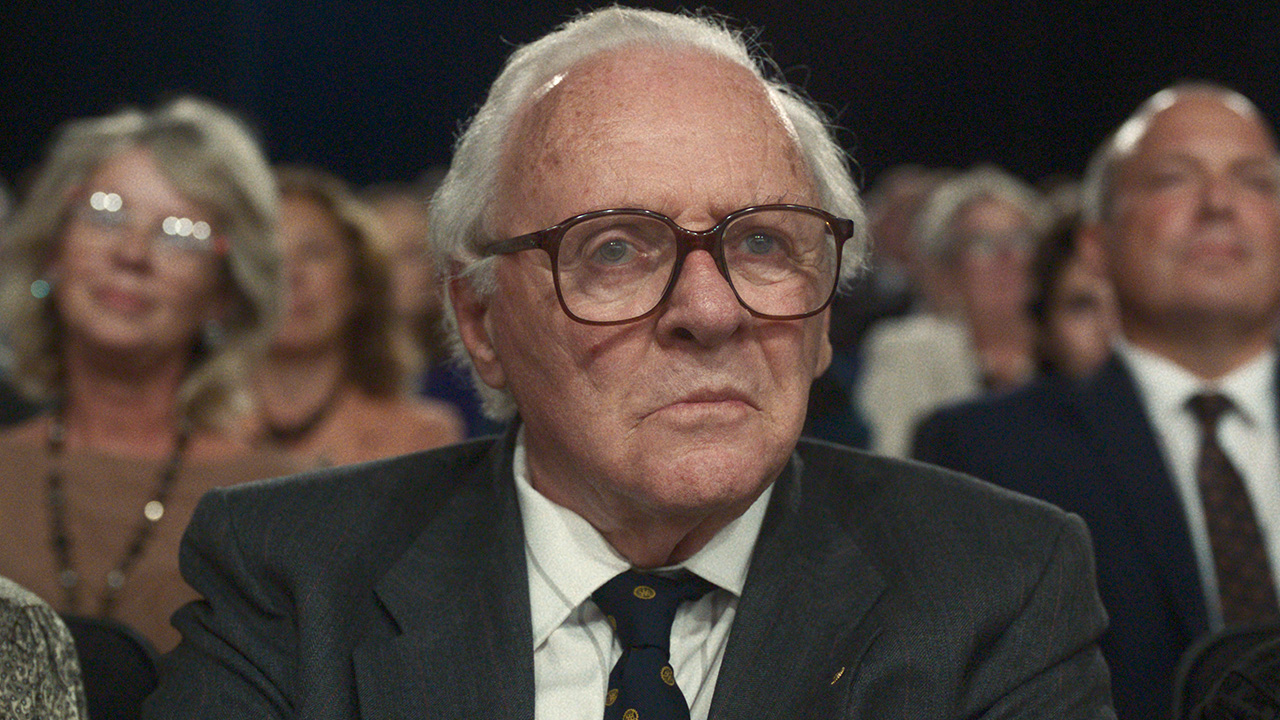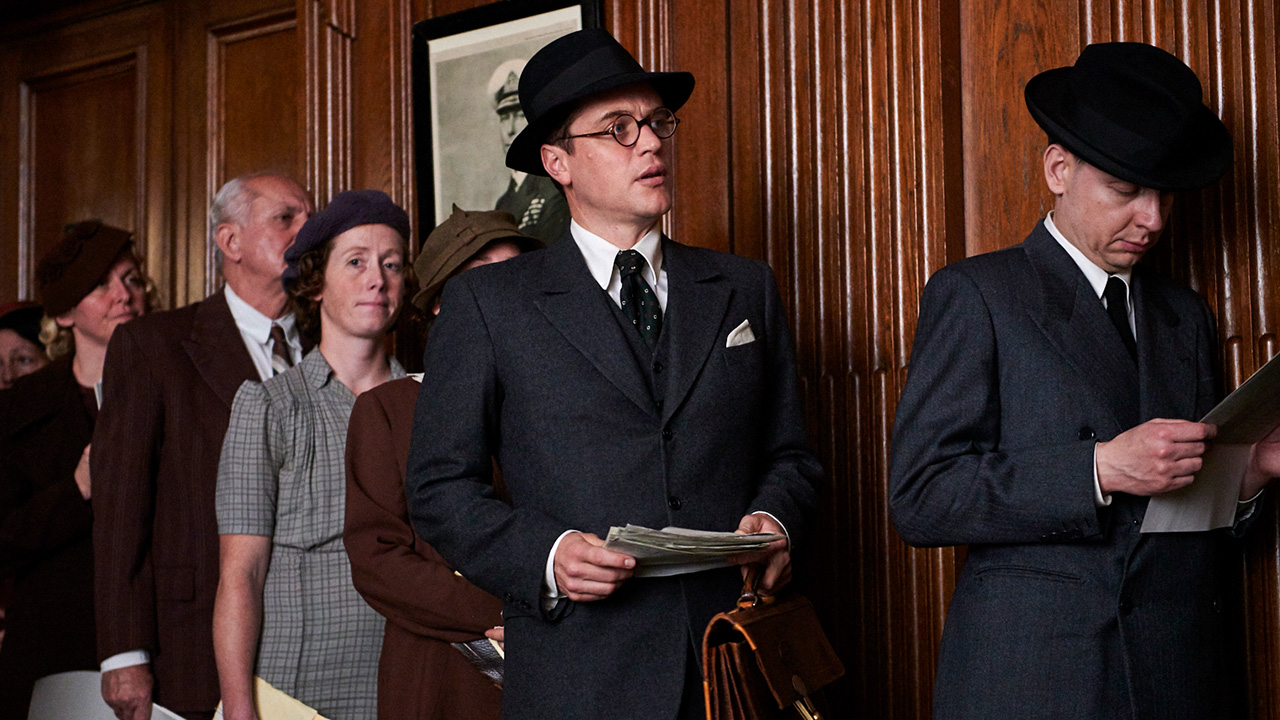True hero story One Life reflects its real-life subject: humble, noble, deserving of your attention

BAFTA-nominated director James Hawes (Slow Horses) casts the great Anthony Hopkins as real-life hero Nicholas Winton in One Life, a retelling of the British humanitarian’s story. As Liam Maguren praises, the film is much like the man himself: humble, noble, and deserving of your attention.
When you write about film for over a decade, you’ll inevitably feel jaded about film itself at some point—especially during awards season. After seeing so many by-the-numbers historical dramas and formulaic biopics gagging for a trophy, you’ll find yourself signing your soul to the devil in exchange for an Oscar bait title that dares to do something daring with its narrative. Or its production. Or its cinematography. Or its film editing. Anything to release you from the prison of cinematic monotony.
One Life isn’t that kind of daring film. It’s something rarer. It’s the type of historical biopic that tells its story straight, without flash but with clear purpose, in a manner so fitting, that it’s difficult to conceive of a better way to convey this real-life tale. Or this real-life hero.
Anthony Hopkins embraces the film’s unshowy ethos as the older version of British humanitarian Nicholas Winton, reflecting on his younger years when he essentially pencil-pushed his way to saving hundreds of Jewish children from rising Nazi Germany. Hopkins skillfully employs a doddering demeanour and mousey mannerisms to quietly showcase a man who didn’t—or perhaps refused to—recognise what he achieved, too distracted by lingering questions left unanswered for decades.

Playing Hopkins’ double is no easy feat but Johnny Flynn convinces as the younger Winton, more through character consistency than dramatic flair. Just as mousy but with battery packs full of youthful vigour, we see this Winton taking time off from his job as a stockbroker to visit—and witness—the horror unfolding in Prague. Almost instinctively, Winton commits himself to the cause, banding alongside the other humanitarians and offering his powers of pragmatics to secure the visas, funding, and foster families needed to help the children escape.
While most World War II films feature soldiers fighting Nazis, One Life presents a war hero wrestling British bureaucracy. With his employer constantly asking when he’ll be done with this save-the-children nonsense, the hoops Winton must jump through increase dramatically—and then set alight—the moment he returns to Britain and its stone-faced government. With so many young lives on the line, seemingly rudimentary processes—signing papers, appealing to the public, waiting in a lobby for some suited snob to give you five minutes of his time—carry a compelling amount of tension knowing what’s at stake, thickening even more as Winton’s promises look emptier by the day.

These flashback sequences carry the basic story across the line. However, the moments with Hopkins’ Winton reveal the true emotional heft of those actions. If you’re not familiar with the famous That’s Life segment teased in the trailer, prepare to have your tear ducts wrung out. Even if you are familiar with that historical moment in television, that might not save your box of Kleenex from total annihilation. My cinema was sob-sniffing for a solid 10 minutes.
There are numerous reasons why One Life‘s climax works so well. Partial credit goes to the real That’s Life for creating the inspired segment (though, as the film acknowledges, they somewhat wrongly ambushed Winton during the first record). There’s also the hovering thematic weight of the value of life, a quality multiplied by the decades of time passed, that presses down on the heart in this one moment.
But above all else, Hopkins, as masterful as ever, lulls the audience into a false sense of security with his tightly composed ordinary-man performance. That quiet quality permeates throughout the film, creating an emotional baseline for the conclusion to pole vault over. In this way, One Life is much like Winton himself: humble, noble, and not out for an award, but wholly deserving of your attention.



















